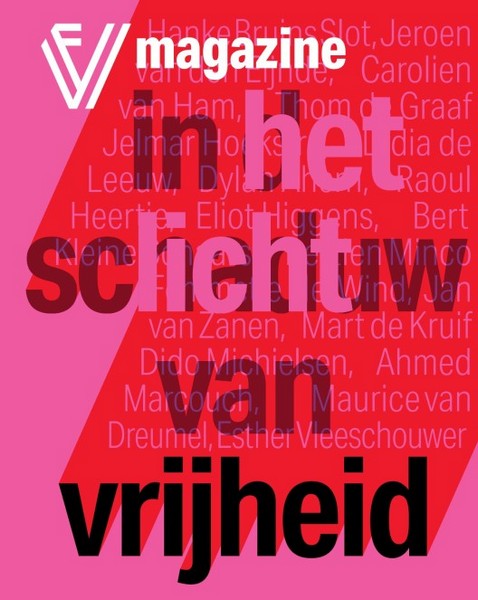

In the Service of Peace.
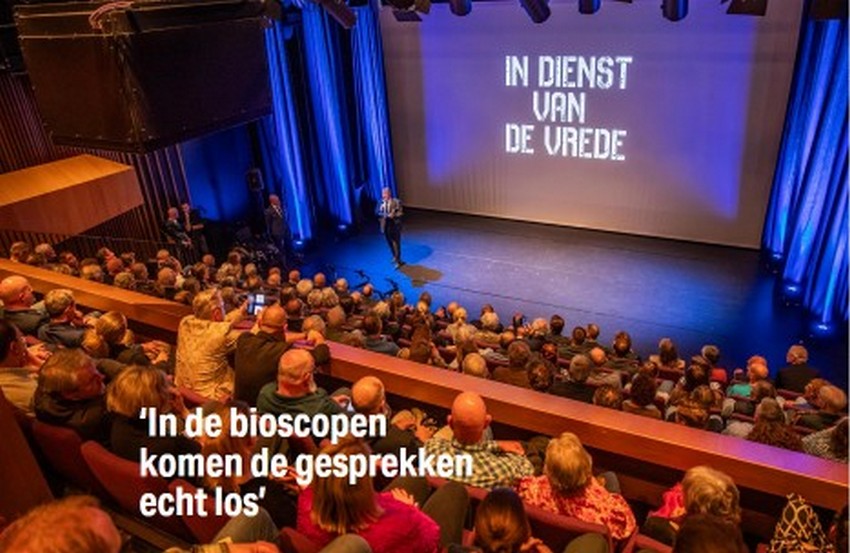
Documentary maker Jelmar Hoekstra and veteran Bert Kleine Schaars,
about "In the Service of Peace", the documentary about the UNIFIL peacekeeping mission in Lebanon in the eighties. For many people, it is little known or even forgotten that the Netherlands sent thousands of soldiers to Lebanon in the 1980s as part of a UN peacekeeping mission. But the recent escalations of violence in the Middle East have put this old mission back in the spotlight.
What did director Jelmar Hoekstra discover during the making of his film about this mission and the impact on the veterans involved?
And how does veteran Bert Kleine Schaars look back on both the mission and the film?
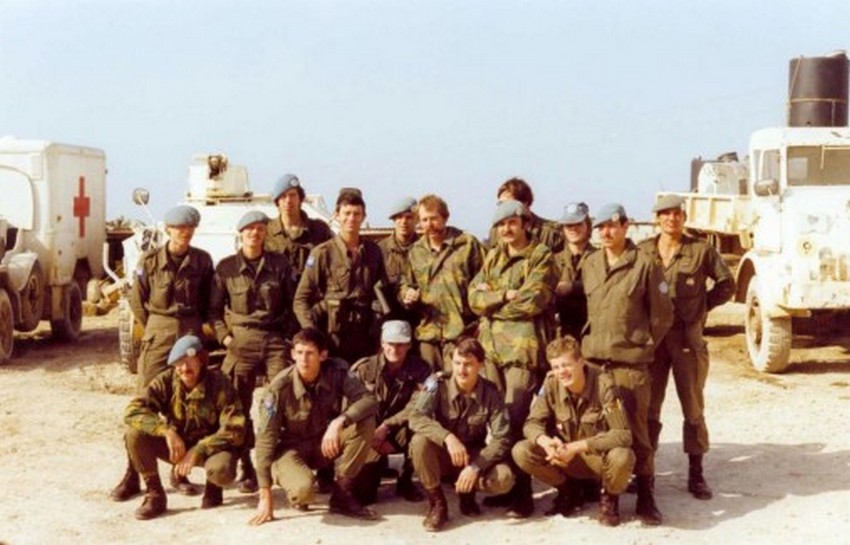
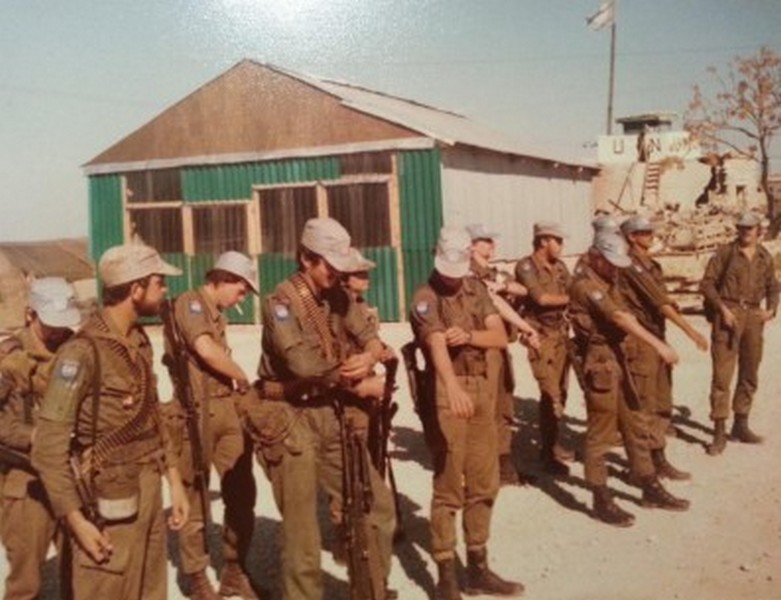
Text: Koos de Wilt.
For director Jelmar Hoekstra (42) there was a special occasion to make his film about the international UNIFIL mission in Lebanon and its aftermath."I got the idea for this film when Hamas started the attack in Israel on October 7, 2023.
Shortly afterwards, I saw missiles being fired from southern Lebanon on the news and I understood that there are still UNIFIL soldiers in the area.
I realized that the story of that time is still relevant".
In January 1979, the Netherlands was asked to participate in the United Nations Interim Force in Lebanon (UNIFIL).Politicians in The Hague decided to participate in this international mission.
From the beginning of March 1979, more than 9000 Dutch soldiers were active in Lebanon for almost six years.
"In the Service of Peace" shows that both The Hague and the Ministry of Defence have misjudged the conflict and the war zone in which the often conscripted soldiers ended up.
Bert Kleine Schaars (63) was one of the conscripts in '80-81 in Lebanon, a country that was in danger of falling apart due to a civil war and the United Nations wanted to prevent worse.
Since then, Lebanon has not let him go: "I was nineteen when I arrived in Lebanon. You don't know much about the world at that time, but you think you can handle it. A bit naïve, of course, but I thought I was going to save the world. I was never so concerned with being a veteran after that, but Lebanon always stayed in my head. Until I happened to be in The Hague in 2014 where the Dutch Veterans Day was taking place at that time. My family and I went to have a look. On the Malieveld, a UNIFIL guard post had been reconstructed with some vehicles. That hit home hard. I put a photo of boys on Facebook and immediately got a lot of reactions from boys I hadn't seen or spoken to for years. They sent photos that I was in and that I had never seen before, then I got into an emotional rollercoaster".
How do the veterans director Hoekstra spoke to remember their time in Lebanon? While making the film, I discovered that there are two camps. Some, like Bert, say they had an adventurous time and above all have beautiful memories. But you also have veterans who still struggle with their experiences on a daily basis. Some struggle with PTSD and there are men who wonder what they were actually doing there and whether they were on the right side. Were they properly prepared for the mission? Many of them were conscripts and served as targets between the warring parties, without the possibility of fighting back. This risk was taken by politicians. Of course, I realize that it was the first mission in decades, so there was not much knowledge and experience.
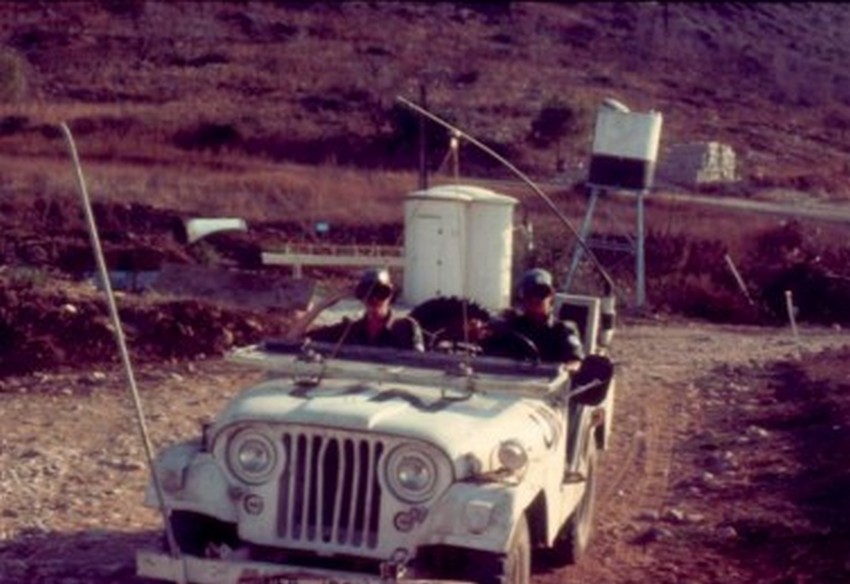
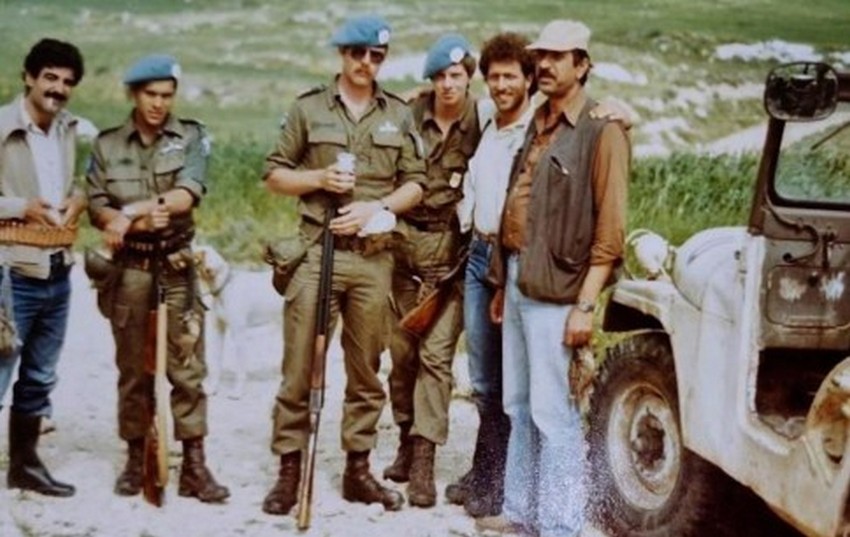
Knowledge.
A few years ago, Hoekstra made the documentary 'our boys in the jungle', about stories of Dutch soldiers who fulfilled their military service in Suriname. He then made the film on the basis of the 8-mm film material that the veterans filmed themselves at the time. For 'In the Service of Peace' I also used a lot of unique material that I found at the Netherlands Institute for Military History (NIMH). I also collected stories from veterans, including Peter van Uhm, who was a sergeant at the time. I also spoke with NOS correspondent Daisy Mohr, who lives in Lebanon and reports on the area, and with journalist Jan Keulen, who was a correspondent at the time and has written several books about it.
What story did the director want to show with his film?
Hoekstra: The Netherlands has been there for six years, so a lot has happened. I wanted to show how it really was and focus on the fact that there was so little information about the conflict at the time. The former correspondent Jan Keulen also says in the film, for example, that soldiers only really understood what was going on in 1985, when they left. It is also very complex, logical that they did not fully understand that.
Nowadays we have media on the ground and a lot of social media. Soldiers and military leaders are much more outspoken than they were back then. We are now seeing this clearly in the reactions to the current war in Gaza and Lebanon. Now there would probably be more explicit criticism of Israel for seizing part of Lebanon and Israel's role in the creation of Hezbollah.
That was not the case at the time, many soldiers did not know what they had ended up in. This ignorance from the past remains relevant as we see once again how quickly situations can escalate and how important it is to understand the full picture.
This also applied to Kleine Schaars. He now knows a lot more about the situation at the time: I think it was good that we went there. It was necessary to create a buffer between the Palestinians and the Israelis, especially for the people of Lebanon who have already suffered so much.
For that reason alone, it was important to go. The Palestinians and the Israelis of that time are still there, but it has all hardened. After Israel's second invasion, Hezbollah came into being, and we all know that Iran is behind it. And with that, the violence has escalated. At the moment, there are still 10,000 UNIFIL soldiers. In fact, not much has changed, Hoekstra learned when making and editing the film. The then Dutch ambassador and historian Nikolaos van Dam also confirms this in the film.
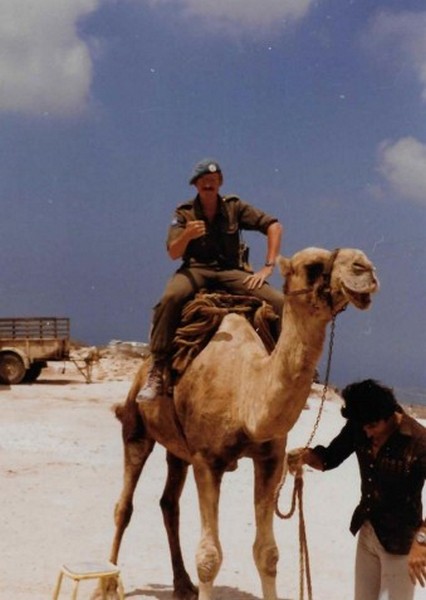 in conversation
in conversation
Hoekstra has learned a lot about wars like this, especially through conversations after the completion of his film.
I found it special that van Uhm remarks in the film that as a UN you should actually stay longer in the area to really be able to change something. This can be interpreted by some veterans as criticism of their work. It's all very sensitive, which I noticed during the screenings of the film in cinemas throughout the country.Cinemas work very well for these kinds of projects, better actually than when people see the film on television on their own. The halls were full of veterans and their families, who could experience what took place at the time and talk about it with each other. At the time of that film screening, the situation in the Middle East was very different from today. I can imagine that the conversations would be different now.
It really happens there in the cinema, but as a director you sometimes get strong criticism thrown at you. In Hoorn, for example, a heated discussion started. There it turned out that veterans experienced that period very differently and lived with it differently in the decades that followed than the veterans who speak in the film. Some felt that the film mainly highlighted the negative sides, while others felt that their stories were still not really heard. At another screening, a Marine colonel expressed his appreciation for the film's honest journalistic approach. 'My experience, especially since I wrote a book about it, is that everyone experienced that period, including the documentary, in their own way'.
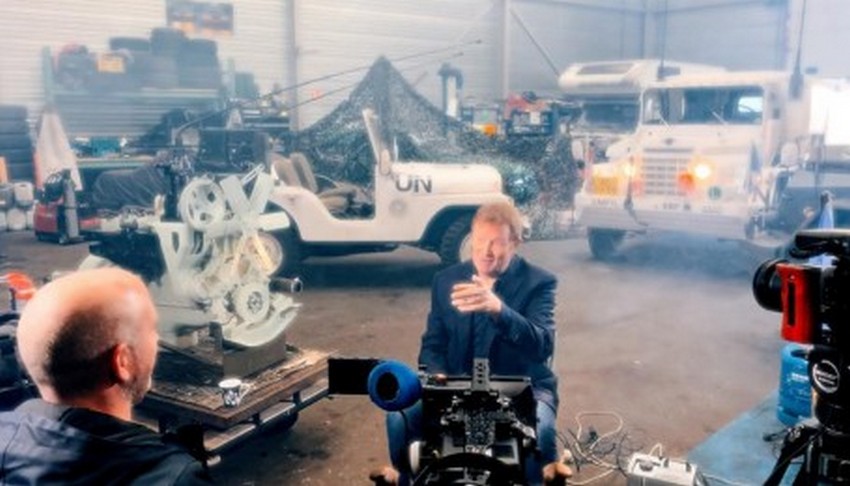
Cinema
Kleine Schaars: 'It's a shame that the documentary didn't make it to television, because it would have been nice if the whole of the Netherlands had seen it. It is important that the mission is not forgotten. It is crucial that we continue to tell these stories so that we as a society better understand what is at stake and what the consequences of war are, both then and now. Yet it is already worth its weight in gold that the film has been shown throughout the country with all the aftertalks with veterans and their families. That did a lot of good! It is also partly my own story and I therefore felt very naked when I saw myself on such a screen. In Leeuwarden, a daughter stood up and said that she had learned more about the mission in one hour than her father had told in the past decades'.
What can we as the Netherlands learn from missions such as Lebanon's? For Kleine Schaars, it comes down to more preparation: 'We knew very little about the conflict. If you have to be a buffer between two forces, if your mission is to maintain peace, then it is important that you can respond to the situation with more knowledge.
This lesson is particularly relevant now that the complexity of the situation is once again painfully visible. What also helps is that you are sent out with a mandate that does not tie your hands and that is not the result of an unrealistic political compromise. Especially if it endangers the population that is constantly the victim of wars like this'.
Hoekstra: 'Current events remind us that the problems in the region are deep-rooted and that the lessons of the past still apply'.
Vfonds Vmagazine-2024-291124
Published on 5 december 2024
